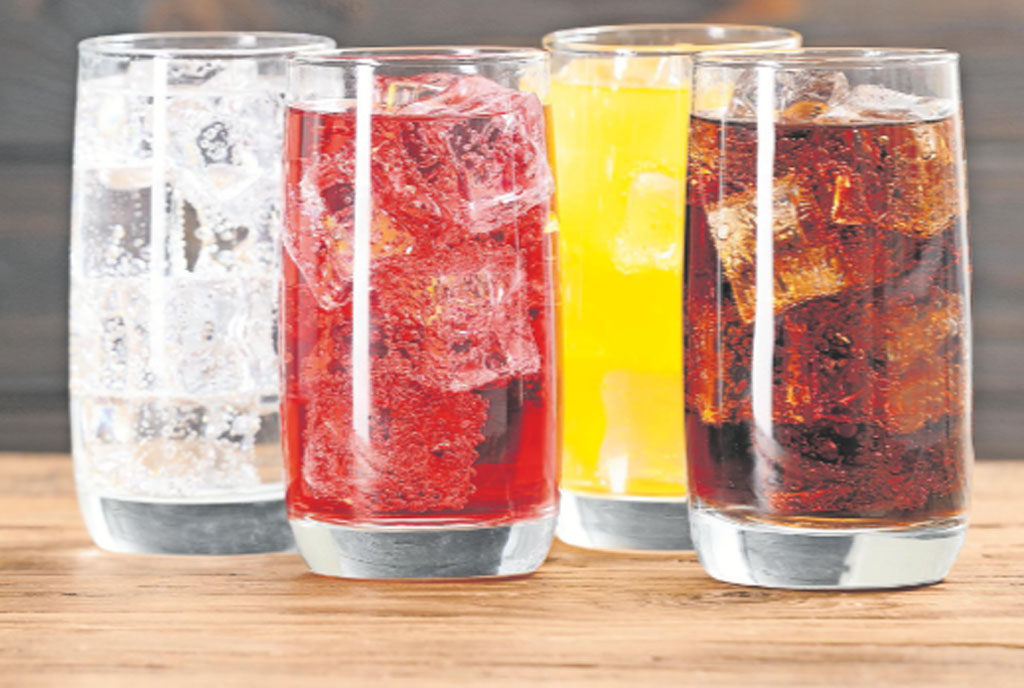The dangers of taking too much soda

A colleague at work cannot go a day without drinking soda. Despite being warned about the health risks, he insists that nobody can come between him and his soda. Hopefully, after reading this article, he will reconsider his stance.
Regular soda consumption has been associated with various health issues, including obesity, type 2 diabetes, tooth decay, and heart disease. While soda has become a staple in our daily lives, it is not a healthy choice.
We are introduced to soda at a young age, often at family gatherings or friends' parties; after all, what is a celebration without soda? The sweet, fizzy taste of soda is enjoyable, and we associate it with many happy memories. As we grow older, soda becomes a regular part of our lives, providing a quick energy boost. As we consume it more frequently, our brains start to crave the sugar and caffeine rush that comes with every sip.
Before we know it, our occasional soda habit becomes a daily one. We start to rely on it to get through our busy days, calm our nerves, and satisfy our sweet tooth. The high sugar and caffeine content in soda activates the brain's reward centres, releasing the feel-good chemical dopamine. This creates a cycle of craving and consumption, making it challenging to cut back or quit.
As we continue to drink soda regularly, our taste buds and brains adapt, making it harder to enjoy water or other low-calorie drinks.
Why stop
It is important to note that soda is essentially empty calories and has no nutritional value. Each can or small bottle of soda contains about 140 empty calories, which can contribute to weight gain.
Agnes Khula, a nutritionist from Slim Possible, says soda plays a significant role in weight gain due to its high calorie and sugar content. Consuming sugary drinks can lead to increased appetite, which may result in overeating and weight gain. Some people believe that diet soda is a healthier option, but studies have shown that switching to low-calorie or zero-calorie soda does not result in weight loss.
Additionally, regular soda consumption slows down metabolism, making it harder for the body to burn fat.
The acid in soda is also known to erode tooth enamel, leading to decay. According to a study by beutmond.com, teeth exposed to popular soda products for 48 hours showed a five percent decay, leading some researchers to compare soda to battery acid. The acid in soda can also irritate the stomach lining, causing heartburn and acid reflux.
Sugar overload
Khula explains that an average bottle of soda contains up to 40 grammes of sugar, which is equivalent to 10 teaspoons of sugar. This amount is higher than the recommended daily intake of 25 grammes for women and 38 grammes for men. Most of the sugar in soda comes from high fructose corn syrup, which is harder to metabolise than regular sugar. Consuming too much sugar can lead to various health problems such as obesity, diabetes, and heart disease. Many sodas are artificially sweetened with substances such as aspartame and sucralose. These sweeteners, according to oracura.com, have been linked to various health issues, including dental concerns, headaches, dizziness, and digestive problems.
It dehydrates you
While a cold bottle of soda might seem like the best option to quench your thirst, it can dehydrate you in the long run. The caffeine in soft drinks is a diuretic, leading to potential dehydration. (Diuretics are substances that increase the amount of urine you produce and help get rid of excess water.)
The high levels of sodium and sugar in soda can also contribute to dehydration. Additionally, when soda consumption becomes a regular habit, many people end up replacing their vital water intake with soda.
Your bones
The phosphoric acid in soda makes it harder for your body to absorb calcium, which can lead to osteoporosis. Poor calcium absorption can also cause cavities in teeth that are already weakened by exposure to soda.
How to quit
"I used to drink about a litre of soda a day, but I have been soda-free for 10 years. So, I can assure you that the tips provided below, if followed with determination, will help you overcome your soda addiction," Khula says.
Understand your craving
First, recognise when and why you reach for a soda. It could be due to stress, boredom, social gatherings, or just a habit. Do you have an emotional relationship with soda? Many people drink soda when they need a pick-me-up. Acknowledge the emotional aspect and find healthier alternatives to deal with those feelings.
Quit gradually
Cut back slowly. Khula says, if you are a heavy soda drinker, it will be hard for you to suddenly quit. Therefore, start by reducing your intake a little each day. Replace one soda with water or a healthier alternative such as flavoured water or tea. If you have been drinking three sodas a day, cut it down to two, then to one over time.
Healthier alternatives
Explore healthier options such as water, herbal teas, and fresh juice. Infused water is a perfect alternative too; you can add fruits such as lemon, lime, or berries to your water for added flavour. If you miss the fizz, Khula suggests opting for sparkling water.
It will be easier for you to get over your addiction if you involve your family and friends; they can help keep you accountable. Be honest with yourself about this addiction with people who can provide support and feedback. Also, reward your progress and celebrate small victories. This will feed your mind, eventually helping you break the habit and form a new one.
Remember, breaking away from your soda addiction will take time, effort, and perseverance. Start your journey today and take control of your health.
As we continue to drink soda regularly, our taste buds and brains adapt, making it harder to enjoy water or other low-calorie drinks.



0 Comments